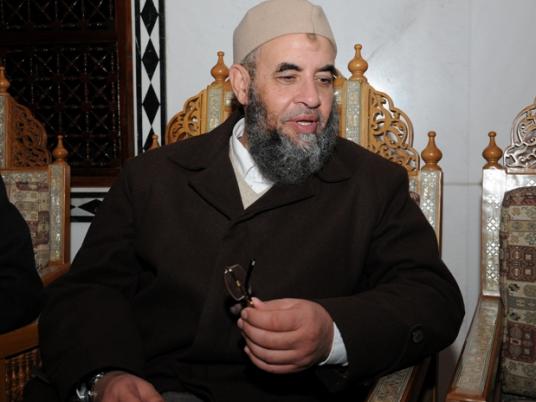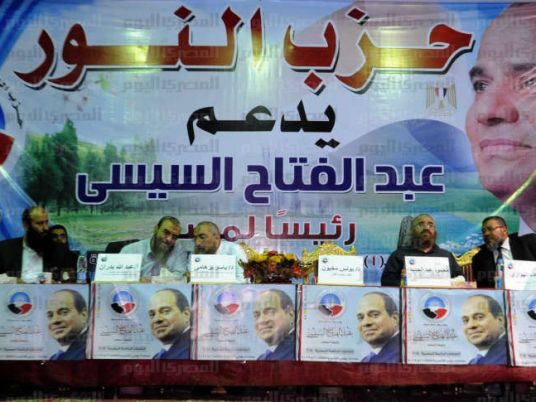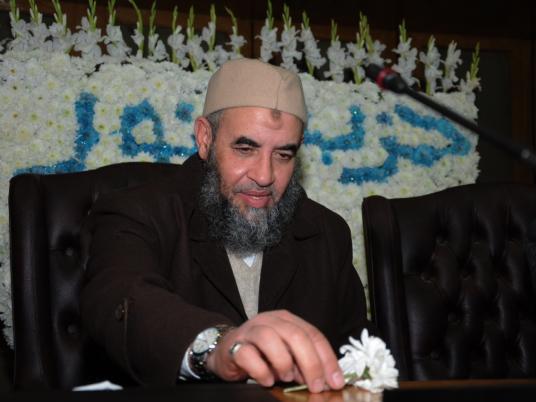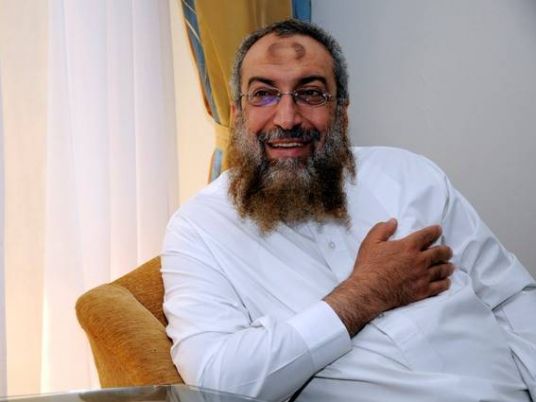
Salafi Al-Nour Party has laid out their position on Egypt's political road map, according to Party Chairman Younis Makhyoun, who submitted the plan to Ahmed al-Muslimany, the president’s media advisor, along with their reservations on various constitutional amendments.
Revealing what was submitted to Muslimany, Makhyoun said the party requested not to exclude any faction from political life as long as that faction did not commit crimes. “We do not want to do like the Brotherhood and exclude others,” he said. “We even said so about the National Democratic Party. We do not want any faction to work underground.”
Makhyoun added that among the steps to reconciliation are stopping violence against peaceful demonstrators, incitement rhetoric and arbitrary arrests, as well as the formation of a fact-finding committee to investigate human rights violations after June 30, including the Republican Guard, the Nasr City and the Abu Zaabal incidents.
“I do not find words to express the grief and sorrow in my heart for the lives that were lost in the streets from the police and the army,” Makhyoun said in a press conference. “The Nour Party had warned of this a long time ago, and came up with initiatives to end the bloodshed that we could not imagine.”
“Our priorities are to achieve stability, restore calm to the streets, prevent a civil war, and reach a genuine national reconciliation,” he added. “This requires flexibility and sacrifice from all parties.”
“We also said that we do not want a return to the police state before the Jan. 25 revolution,” he said. “We want freedom of expression, freedom to form political parties, the rule of law and the respect for human dignity.”
With regard to the army, Makhyoun said we all must stand by them despite our political disputes, for the Egyptian army is a red line not to cross. “It is the only remaining army in the Arab world and there are plots against it and against the Egyptian state,” he said.
“Al-Nour Party warned of external conspiracies of neo-colonialism to make Egypt succumb economically,” he added. “We are no exception. We have economic challenges just like Europe, the United States and China.”
“Some aim to exhaust Egypt in a slow manner after others failed to bring it down in a fast manner,” he said. “There is a war of attrition going on.”
“We must fight against the conspirators so the army can resume its natural place guarding our borders,” he affirmed.
Regarding the Al-Azhar institution, Makhyoun said the state derives its power from its institutions. “Al-Azhar plays a strong role in the stability of the situation inside the country and a soft role abroad,” he said. “We reject insulting that institution.”
He stressed that the role of religion is essential to building the nation. “Islam did not come or go with Morsy,” he said. “We all value our religion that we grew up on.”
“The current government is part of the conscience and the morals of the people, and it is not against religion nor will it ever be,” he said, adding that he would relay the position of the Nour Party to interim President Adly Mansour.
For his part, Muslimany said the party’s vision can be summarized in “Existence” and “God’s Limits.” “I relayed to them the president’s greetings and his appreciation of the party’s role in the June 30 revolution,” he said.
“Al-Nour’s and the participation of all political forces in the committee is essential to protect the revolution, defend our identity, and come up with a consensual constitution that ends the transitional phase and enjoys popular support,” he said.
“We need to concentrate on public services like education and health,” he said. “And we need to renew and expand our political elite, and the opposition should be broader than that.”
“It is unfortunate that the political conditions did not produce an experienced and knowledgeable elite before,” he said. “I hope the political forces nominate experienced and knowledgeable for the government.”
On the Constitution, he said the party objects to many articles, whether in form or context. “The referendum of March 19 and the Constitution of 2012 showed us that handling the constitution should only be through an elected body,” he said. “The Committee of Ten is appointed, not elected. We do not know the criteria of its formation and it works behind closed doors.”
He said the constitution does not mention the Jan. 25 revolution, which casts doubts about the committee’s position on the revolution. “They cancelled article 219 on the Egyptian identity, deleted the word Shura from article 6, although it was approved by everyone, cancelled article 11 on ethics and morals, article 12 on culture and civilization, the article on endowment, which exists in all constitutions of the world, article 44 on the defamation of the prophets, and article 81 on exercising rights without violating public order,” he said.
Ashraf Thabet, a member of the Nour Party executive committee, said the party was not pressured in any way to participate in the Committee of 50. “We have confidence in the committee,” he said.
Bassam Zarqa, vice president of Al-Nour Party, said the party rejects the demonstrations slated for Aug. 30. “We are against mobilization, counter-mobilization, and polarization,” he said.
Edited translation from Al-Masry Al-Youm




